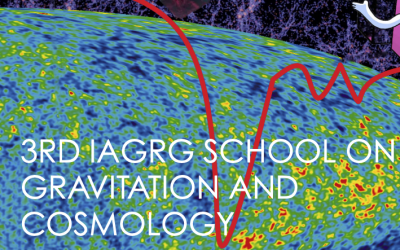Gravitation and cosmology allow us to probe the nature of the universe at its largest scales and gain insights into the underlying structure and dynamics of the universe. New observational techniques in the field of cosmology have allowed us to estimate various cosmological parameters with remarkable precision. Recent advancements in observational techniques have revolutionized our understanding of the universe. Some of these techniques include Cosmic Microwave Background (CMB) Observations, Large-Scale Structure Surveys, Supernova Cosmology, Baryon Acoustic Oscillations (BAO), Gravitational Lensing, Redshift Surveys etc. These techniques have collectively allowed cosmologists to estimate parameters such as the Hubble constant, the density of dark matter and dark energy, the curvature of space and the composition of the universe with remarkable accuracy.
The third Indian Association for General Relativity and Gravitation (IAGRG) school on Gravitation and Cosmology aims to train young researchers in these exciting areas of Cosmology. The program is mostly intended for graduate students working (or starting to work) on cosmology and related areas. In this school, the emphasis would be on cutting-edge topics on modern cosmology, both theoretical and observational. Four contemporary topics will be taught by the leading experts which are:
1. Inflation
2. The Cosmological Standard Model, its Tensions, and New Physics
3. Galaxy Surveys
3. CMB physics
The school will be of two weeks duration. There will be two 1.5 hours of lectures and two tutorials per day with a total of 10 lectures and 10 tutorial sessions weekly. We also plan to organize some evening discussion sessions.
Accommodation will be provided for outstation participants at our on campus guest house.
Eligiblity criteria: The program is intended mainly for graduate students (Ph.D.) working (or starting to work) on cosmology, and related areas. An exposure to some basic course on cosmology will be preferable. Senior Ph.D. students will be given preference. We also welcome applications from young postdoctoral researchers.
The applicant should write a brief description (within 150 words) of their research experience and how this school will benefit their future research work.
ICTS is committed to building an environment that is inclusive, non discriminatory and welcoming of diverse individuals. We especially encourage the participation of women and other under-represented groups.
 icts
icts res
res in
in

